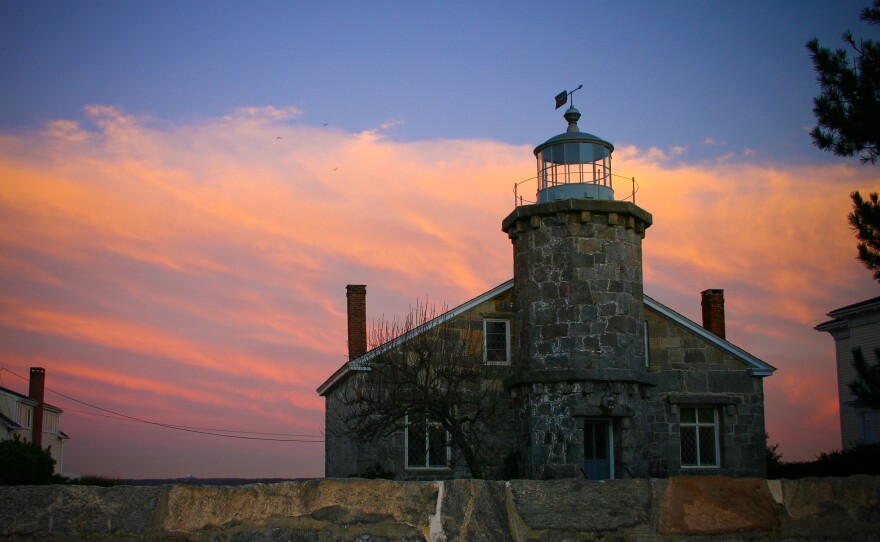Most New Englanders are no strangers to lighthouses.
After researching them for his new book, Eric Jay Dolin of Marblehead, Massachusetts, is an expert. Brilliant Beacons explains the history of American lighthouses -- and those who care for them.
New England Public Radio's Carrie Healy interviewed Dolin about his book.
Eric Jay Dolin: I would say the most amazing thing that I learned had to do with the involvement of lighthouses in the conflicts of this nation. I had absolutely no idea that lighthouses played a significant role in the American Revolution and in the Civil War. And it was just fascinating to learn about how lighthouses became pawns, and they were attacked and defended by the various combatants.
NEPR's Carrie Healy: So there’s an assault on the Boston lighthouse in the summer of 1775.
This is at a time of rising tensions between the colonists and the English. And as a result, the continental soldiers wanted to put out the lighthouse because lighthouses help ships get into and out of port, and there was an expected invasion by the British forces so a group of continental soldiers disabled the lighthouse.
But then soon thereafter, the English took over the island, Little Brewster Island. They put the lighthouse back in working order. And this upset George Washington, and he in turn ordered another attack of the lighthouse.
But then, once again, of course the British Navy who needed that light, rebuilt the parts of the lighthouse that were damaged and it was shining once again. And then when the British finally evacuated, they were so annoyed by how they had been treated, they put a bunch of powder at the base of the Boston lighthouse, lit the fuse, and in about an hour’s time, the lighthouse was turned into a mass of rubble.

It was startling for me as well to realize how much was really at stake in the running of the lighthouses, and how it became the first federal pension system.
For many years, for well over 100 years after, the responsibility for lighthouses is assumed by the federal government. Lighthouse keepers had no form of pension. So many of them would work well into their seventies or even older because they couldn’t afford to retire. But the head of the lighthouse commission, a guy named George Putnam, lobbied very hard in the early 1900s to get these selfless civil servants the pensions that he felt they so richly deserved. And he was ultimately successful, and it was the first civil service pension that was awarded to any government workers.
I was fascinated by the book -- from describing daring sea rescues, to farming sometimes very poor land around the base of the lighthouse, to be in solidarity with the rest of the country when they were at war, to seabird mishaps. After knowing what you now know about the jobs of the keepers of the lighthouses, would you go back and would you be a keeper now if you had the chance to?
Absolutely not [laughs]. Being a keeper was a very difficult job. I much prefer being a writer. It’s a little bit easier and less dangerous.
So you wouldn’t do it even to have the first-hand narrative experience?
Of course, yes. If I could do time travel and I could go back and be a keeper for a couple months, then I could come back and I could rewrite the chapter that I wrote about lighthouse keepers -- that would be a little more authentic.
This report was originally published at New England Public Radio.







